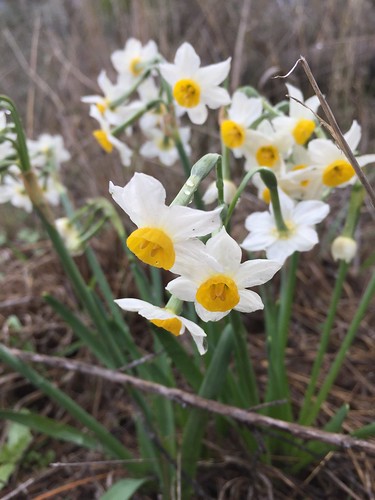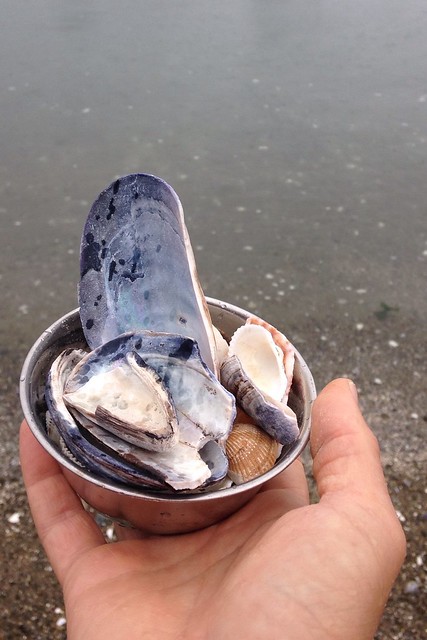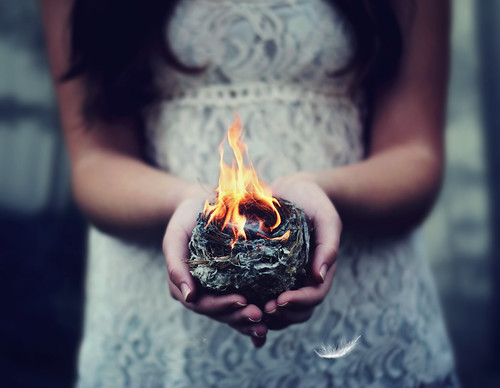I searched in
Basenotes to find out if there are more perfumes with the word "Dew" in them and found them to be surprisingly abundant. From the obvious Youth Dew and its flanker Youth Dew Amber Nude to silly novelties such a the fruity variations on
Honeydew Melon (there's also a Honeydew from Dragonfly Blue) and The Body Shop's Dewberry to Demeter's Fragrance Library's
Mildew (oops!); and onwards to more romantic names such as
Dew Blossom (Love & Toast),
Almond Blossom Dew (L'Occitane), seasonal references (The Body Shop's Winter Dew and
Oscar de la Renta's Summer Dew) and cliche names such as
Meadow Dew and
Morning Dew (both by Alyssa Ashley and Annie Oakley). Out of all these names perhaps the only one I am intrigued to try is Montale's
Dew Musk.
So I was trying to think about three things: Why is dew important? How is it different from rain? And lastly - what perfumes remind me of dew?
First of all, keep in mind that the seasonality of rain versus dew is entirely based on the agricultural needs in the Holy Land - where the rainfall is crucial for livelihood of both people and livestock. Also, in the Omer season (the wheat harvest season - from Passover to Shavuot), it would be a curse to have rain falling as it would spoil the wheat harvest, which needs to dry completely in order to be harvested and stored properly. So any precipitation from Passover till Shmini Atzeret (the last day of Sukkot) needs to be gentle and mild.
According to
this article about the
Tfilat Tal, dew is the water that the heaven provides as a blessing of abundance to the plant life. Therefore absence of dew is considered drought, and a curse. This is demonstrated by the fact that the valley of Harod (near the Gilboa in Israel) has little dew. This is the mountain upon which King Saul and his son Yehonata have lost their lives. In his mourning, King David has cursed this mountain to not receive neither rain nor dew (Samuel II, 1:21).
As for the scent of dew - in my mind I associate it with nectar, tiny flowers, green tender leaves and all delicate things. Dew is what gives a garden in the morning its enticing, fresh and crisp yet delicate scent. In all my years collecting answers from readers and customers to what their favourite scents are, this "garden in the morning" is one of the most high ranking answers.
Living in a climate where there is rain in the summer takes away from the surprising effect of experiencing dew. Growing up in Israel, dew was shocking to find time and again when waking up after a hot summer night and attending to the family's vegetable garden. The dew drops will disappear as soon as the sun hits a certain angle in the sky - not that long after rising. Even as early as 7:30 or 8am, you'll find none of it left. I will get wet up to my ankles and knees from the grass and like see it collecting on the unfolding cones of the morning glory vines. But for those early to rise, knowing that there is some precipitation to give the grass, vegetable and flowers - and especially the wild plants and the local fruit trees that don't require watering. All the typically Israeli trees: almond, olive, date, fig, pomegranate, carob - rely entirely on the gifts from heaven.
Dew takes its scent primarily from the plants it lands on. Tomato leaves will give it a funky odour, while sweet scented flowers will give it the taste of nectar. So it's really as versatile as all water: what it touches will transform it.
From my own existing creations,
Bon Zai to me is a fragrance that captures the pure, tranquil feeling of early morning dew on pine needles and blades of grass. Likewise, many aquatic scents bring to mind dew, for example: l'Eau d'Issey. But neither are exactly dedicated to the concept of dew. In my early days in perfumery, I created a perfume called Coeli, which was first inspired by the dew on the herb garden in summer, which at this season was abundant with lush
lemon verbena, melissa and lemongrass. It was obviously very citrusy at first. I later changed the scent into something entirely different, but still rather dewy. It did not fair very well, because I suppose it was not the bold, retro type of fragrance that my customers seem to be most fond of. It was far more modern woody-aquatic-floral type of scent. In the least few years I've worked on a scent inspired by Harbour Green Park (in
Coal Harbour) - the scent of the dew-covered grass in the morning mingled with jet fuel and salty low-tide. Another scent that was also inspired by he same lemony herb garden was titled Clil (the name of my home village) but also had hay in it, which gave it a more bold presence. Perhaps it's time to go back to the drawing board with this scent and re-create my herbal tea garden once more.





